
-
Find the right food for your petTake this quiz to see which food may be the best for your furry friend.Find the right food for your petTake this quiz to see which food may be the best for your furry friend.Featured products
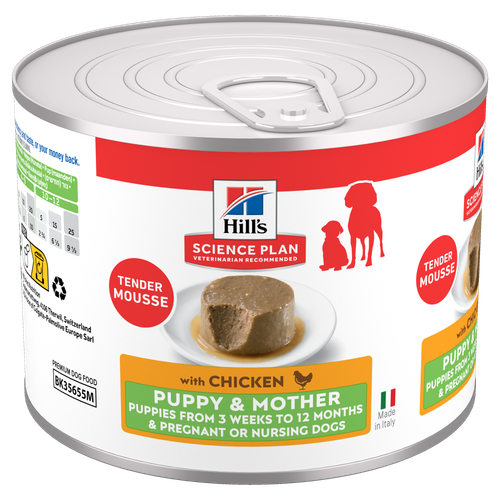 Puppy & Mother Tender Mousse Dog Food
Puppy & Mother Tender Mousse Dog FoodHill's Science Plan Puppy & Mother Tender Mousse Dog Food with Chicken is a complete premium pet food for puppies and pregnant or nursing dogs. Formulated with chicken and other specially selected ingredients, including minerals and antioxidants to support gut health and optimal growth, it comes in a soft mousse texture they'll love.
Shop Now Perfect Weight Small & Mini Adult Dog Food
Perfect Weight Small & Mini Adult Dog FoodHill's Science Plan Adult Small & Mini Dog Food with Turkey is a complete premium pet food for adult small dogs from 1 year old that are prone to weight gain or slightly overweight. This deliciously smooth mousse is formulated to deliver the appropriate amount of energy to support weight maintenance in adult dogs.
Shop Now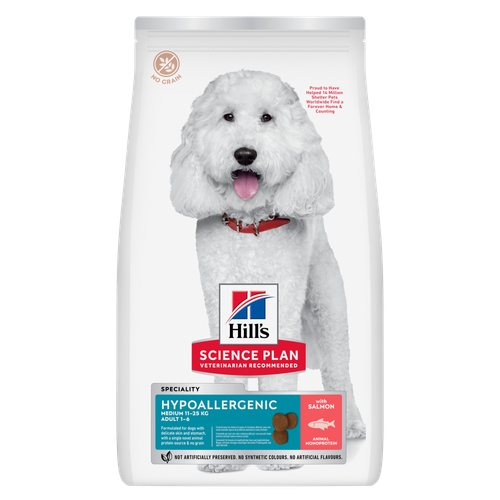 Hypoallergenic Medium Adult Dog Food
Hypoallergenic Medium Adult Dog FoodScience Plan Hypoallergenic Medium Adult dog food with Salmon is a gentle, science-led formula crafted for dogs with food sensitivities. Made with carefully selected, high-quality novel proteins and no grains, it’s tailored to minimise common triggers that can lead to skin and digestive discomfort.
Shop NowFeatured products Oral Care Adult Cat Food
Oral Care Adult Cat FoodHill's Science Plan Oral Care Adult Cat Food with Chicken contains clinically proven kibble technology to reduce plaque & tartar build up.
Shop Now Hypoallergenic Dry Cat Food
Hypoallergenic Dry Cat FoodHILL'S SCIENCE PLAN Hypoallergenic Adult cat food with egg & insect protein is a complete pet food for adult cat 1–6 years old. It's formulated for cats with delicate skin and stomach, with limited high quality novel protein sources & no grain.
Shop Now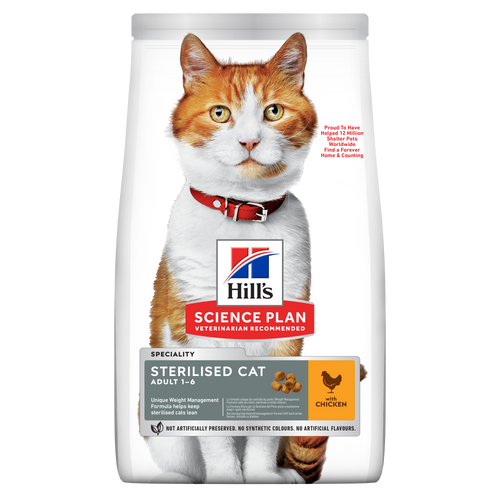 Sterilised Adult Cat Food
Sterilised Adult Cat FoodHill's Science Plan Adult Sterilised Cat Dry Food with Chicken is specially formulated with ActivBiome+ Multi-Benefit Technology. It is a precisely balanced nutrition, tailored to meet the needs of sterilised cats, to help keep sthem lean & healthy.
Shop Now -
Dog
- Dog Tips & Articles
-
Health Category
- Weight
- Food & Environmental Sensitivities
- Urinary
- Digestive
- Joint
- Kidney
-
Life Stage
- Puppy Nutrition
- Adult Nutrition
- Senior Nutrition
Cat- Cat Tips & Articles
-
Health Category
- Weight
- Skin & Food Sensitivities
- Urinary
- Digestive
- Kidney
-
Life Stage
- Kitten Nutrition
- Adult Nutrition
Featured articlesTips for Working From Home With a PetGet helpful information on how to get all of your work done while keeping your dog or cat entertained when working from home.
Read More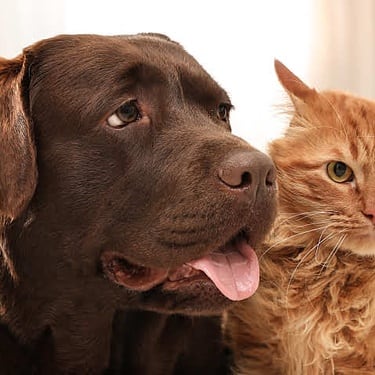 What Cleaning Products Are Safe for Pets?
What Cleaning Products Are Safe for Pets?Learn which cleaning product ingredients can be hazardous for dogs & cats, which alternatives are safer and tips for using cleaning products around pets.
Read More Tips For Mixing Wet And Dry Pet Food
Tips For Mixing Wet And Dry Pet FoodDiscover tips for mixing wet and dry pet food to ensure balanced nutrition and variety for your pet. For comprehensive feeding advice, visit Hill's Pet UK.
Read More -


Is your cat limping and you don't know why? It could be their paw, a muscle, or a joint that's bothering them — but they won't be able to meow the exact location of what's ailing them. Cats may limp for a variety of reasons. So, it's important to understand what to look for and learn how to help alleviate their distress
Common Causes of Limping
Sometimes, your cat may be limping from a simple accident. They may have got something stuck in their paw pad, or they may even have a slight muscle strain. Wait until your cat is calm and lying down. Then, try to inspect their leg and paw. Look for noticeable swelling, redness or signs of pain like meowing or flinching when you lightly touch the area. Wag! points out that a cat with a paw pad injury, such as an ingrown claw, may also lick one paw excessively or avoid walking on that foot. Even if you don't see any swollen paws, and they seem to be doing most of their usual activities, a little limp may warrant calling your veterinarian to prevent an infection setting in.
One danger for cats that can sometimes cause leg injuries is "high rise syndrome," says the Animal Medical Center of New York. A curious cat can easily jump out of an open window and fall. Make sure your windows have strong screens and never leave them open when you're not at home. Even a jump from a high bookshelf can injure an elderly (or a very small) cat, so be aware of how much access they have to high perches.
Arthritis is another issue that can cause cat limping. An older cat who walks stiffly, no longer jumps onto or off of the couch, or suddenly becomes reclusive may be suffering from joint pain. Your vet may recommend changing their food to one that supports joint health or fixing them a new napping corner in a warm, low-to-the-ground spot.
If things do not improve within twenty-four hours, it is best to have the limp looked at by a vet to avoid any long-term damage. Cats are great at hiding their pain, so if they are showing signs, it is likely severe enough that your vet should take a look. Your vet may also take an X-ray to determine the cause of your cat's leg injury.


Tasty Tips
Getting to the Vet
If your cat is in pain, the process of coaxing them into their cat carrier for a trip to the vet may be more difficult than usual. Here are a few things to keep in mind to make the trip less stressful for you and your fur baby:
- Try putting a blanket or shirt that your cat likes to snuggle up to on inside the carrier — one that smells like you may calm them down. Line it with a sprinkle of catnip or a treat and one of their favourite soft toys.
- If your cat will not go into the carrier on their own, handle them gently and be cautious about forcing them into the carrier. You don't want them to injure themselves more. You can put them on a blanket and wrap them up to help them feel secure before placing them in the carrier to risk injury to them or yourself.
When to Be Concerned
Unfortunately, some cat leg injuries will take time to heal. You may have heard of athletes suffering from an anterior cruciate ligament (ACL) tear, but did you know cats can also have ACL injuries? The Atlantic Veterinary Hospital writes that kitty ACL tears usually result from jumping or falling from high places, and are more common in overweight cats. A visit to the vet will confirm if the injury requires surgery, pain medication, or another treatment.
When cat limping is more severe due to an injury or serious illness, it is very important to limit your cat's movement and not allow them to jump or run. Consider borrowing a large dog crate to keep your cat contained while they heal. Make sure you get one large enough for them to have space to walk around between a small litter pan, water bowl and bed or blanket. You can also give them a room in your house, away from other pets and children.
Even if you don't give your kitty a private room, you'll need to make sure their litter box is one that does not require much effort to get into and out of. A shallow baking tray or a small pan for kittens will keep them from injuring themselves further or eliminating outside the box from pain.
It is also important that you never give your cat medication for their pain that your vet did not prescribe. Over the counter medication that is made for humans can be toxic to cats and can make the situation exponentially worse.
Whether your cat is limping due to something minor or major, it is still important to spend quality time with them and try to keep your kitty calm and relaxed. Giving them extra cuddles and some special treats (but not too many) will make the recovery time more bearable as well. It is also important to note that because your cat can't be as active during their recovery time as normal, they won't be able to get adequate exercise. It is important to follow your vet's recommendations for properly feeding them so that they do not put on unnecessary weight and exacerbate their leg injury. As a pet parent, it's never fun to see your pet in pain, but if you follow your vet's recommendations, your companion will be back to their frisky self before you know it!


Chrissie Klinger is an educator, writer and mother of two children, three dogs and three cats. Her dog Jake loves sitting on her lap every chance he gets! She enjoys living an active and eco-friendly lifestyle in rural Pennsylvania.
Related products

HILL'S SCIENCE PLAN Hypoallergenic Adult cat food with egg & insect protein is a complete pet food for adult cat 1–6 years old. It's formulated for cats with delicate skin and stomach, with limited high quality novel protein sources & no grain.

Hill's Science Plan Oral Care Adult Cat Food with Chicken contains clinically proven kibble technology to reduce plaque & tartar build up.
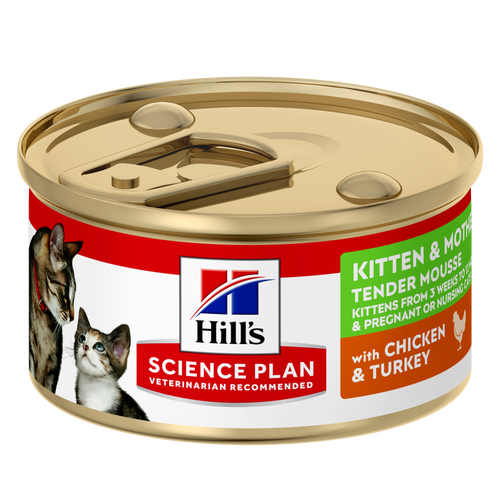
Hill's Science Plan Kitten & Mother Tender Mousse Cat Food with Chicken & Turkey is a complete premium pet food for kittens from weaning until 1 year old and for pregnant and nursing cats. Formulated with chicken, turkey and other specially selected ingredients to support gut health and optimal growth. It comes in a soft mousse texture they'll love.

Hill's Science Plan Adult Sterilised Cat Dry Food with Chicken is specially formulated with ActivBiome+ Multi-Benefit Technology. It is a precisely balanced nutrition, tailored to meet the needs of sterilised cats, to help keep sthem lean & healthy.
Related articles
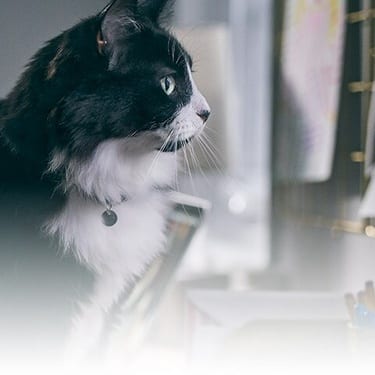
While hairballs are a common occurrence of cats, there are steps you can take to help them manage their problem and keep them healthy.
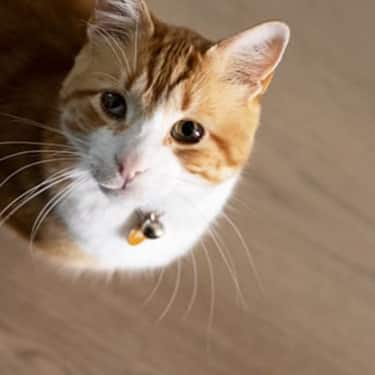
Learn how to spot the signs of a skin condition in your cat and the steps to take for their wellbeing. For comprehensive care advice, visit Hill's Pet.
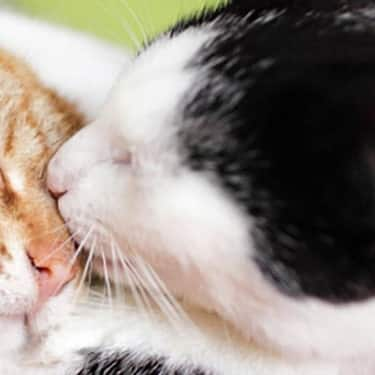
Learn the different factors that might be contributing to your cat's weight gain, and how bigger doesn't always mean better.
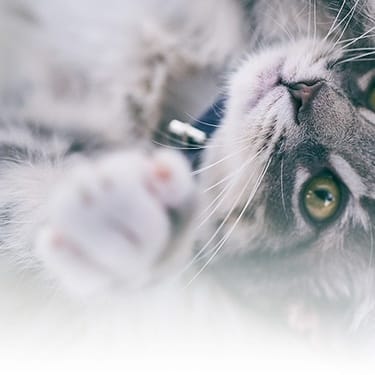
South African vets say more than half the patients they see are overweight. Learn more about managing your cat’s weight.

Put your cat on a diet without them knowing
Our low calorie formula helps you control your cat's weight. It's packed with high-quality protein for building lean muscles, and made with purposeful ingredients for a flavorful, nutritious meal. Clinically proven antioxidants, Vitamin C+E, help promote a healthy immune system.
Put your cat on a diet without them knowing
Our low calorie formula helps you control your cat's weight. It's packed with high-quality protein for building lean muscles, and made with purposeful ingredients for a flavorful, nutritious meal. Clinically proven antioxidants, Vitamin C+E, help promote a healthy immune system.

